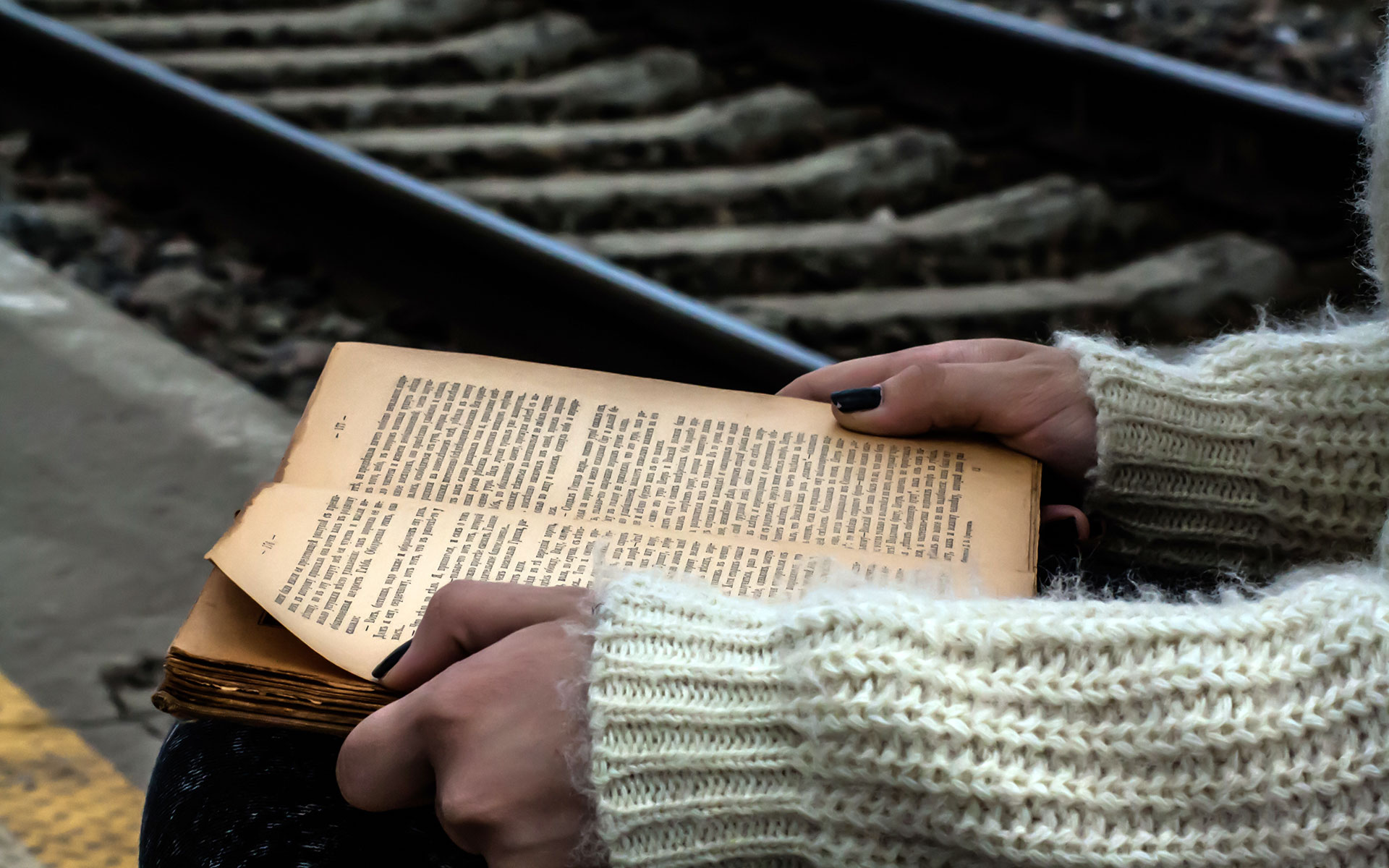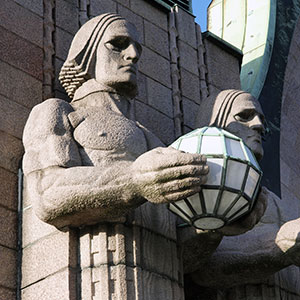Reading on the rails
"words for the rails" - photo © Alisd2 / dreamstime . com
Sometimes I will save a book on my “to read” pile because I know I have a long rail journey coming up, for as much as I love trains for the theatre of what passes by the window, they have also long been one of my favourite places to read. There is something about the promise of a fixed period of uninterrupted time, whether an hour across the Pennines or a night train across numerous borders, that lends itself to immersion in a good book.
Books are rooted in my memory of certain trips. I remember scouring the book exchange shelves of a Budapest hostel, looking for something to keep me company on my night-time journey to Prague. During my first year in Berlin, I read countless books on the commuter train that took me to work in the city centre from my apartment in the southern suburbs. And when I wrote a book about the coast of northern Germany, I did much of my reading – Günter Grass and Thomas Mann, Hans Fallada and Christopher Isherwood – on the regional trains that took me through the lakes and forests north to the Baltic shore.
I often find that, when I think back to a particularly memorable journey by train, I can remember the book that I was reading so vividly that, were I to take the book down from my shelves and skim through a few pages, the words would take me right back to the carriage where I first read it.
A few summers ago I travelled south to the Alps, a fast journey by ICE between Berlin and Munich, reading Marion Poschmann’s melancholic The Pine Islands, so that the gently rolling countryside of Bavaria beyond the window will be forever linked in my mind with the haunting forests of Japan. On the Caledonian Sleeper, somewhere between Crewe and Preston, I read a chapter from John le Carré’s Our Game as the train passed through the landscapes of my childhood in the darkness. In a smoky dining car between Moscow and St Petersburg, I hoisted Postwar by Tony Judt onto the table next to my bottle of Baltika beer, and read about Gorbachev’s wrestling with the Soviet economy as we moved through Russia, twenty-five years after the events described on the page.
Sometimes the book fits the theme of the journey, other times it’s joltingly different. But what about books where trains and rail journeys are an important part of the story? Surely they must be the perfect literary companion to a long rail trip, especially one under the cover of darkness.
A meeting in a train compartment at the border between the Netherlands and Germany is the opening scene of Mr Norris Changes Trains by Christopher Isherwood, a fascinating portrait of Berlin in the 1930s. It's a book which always comes to mind whenever I hear the footsteps of a border guard moving slowly down a carriage. In a bookshop in Kraków I bought Night Train to Lisbon by Pascal Mercier based on the romance of the title alone, and discovered a meditative and thoughtful novel about identity and the moments that can change a person’s life. As a child of the outskirts, I recognised the sense of possibility represented by the commuter trains that linked suburbia with the bright lights of the city centre in the early chapters of Julian Barnes’ Metroland.
And then there is Graham Greene’s Stamboul Train, set on a journey from the North Sea coast of Belgium to the banks of the Bosphorus. In order to write the book, Greene caught a train from Calais to Cologne, taking notes of what he saw outside the window that would find their way into the text: “The reader will probably notice more details on this first stretch of the line than I had the confidence to include later, for as I sat at my third-class window I made notes all through the daylight hours, and you may be sure the allotments outside Bruges were just where I placed them in April 1931.”
That said, for much of the fictional trip he would have to rely on his imagination, as he would only complete the whole journey to Istanbul by train some years later, long after the novel was published.
Thinking of a train to Istanbul also brings to mind the fact that there are, perhaps, certain books that should not be read during a long railway journey, just as there are certain films best left off the in-flight movie programme on an airplane. I am reminded of my daughter who read Agatha Christie’s Murder on the Orient Express and whose first question on finishing the book was whether or not the train still existed and if so, when we would have the chance to take it.
Books and trains continue to be sources of inspiration. And though travelling by train is difficult at the time of writing, there are books in a pile by my desk that are just waiting for the next adventure on the rails, for they make the finest of travelling companions.








About The Author
Paul Scraton
Paul Scraton was born in Lancashire and has lived in Berlin since 2001. A writer with a particular interest in landscape, memory and place, he is the editor-in-chief of Elsewhere: A Journal of Place. He is the author of a number of books including The Idea of a River: Walking out of Berlin (Readux, 2015) and Ghosts on the Shore: Travels along Germany's Baltic coast (Influx, 2017). His debut novel Built on Sand was published by Influx in 2019. Find out more about Paul on his website.